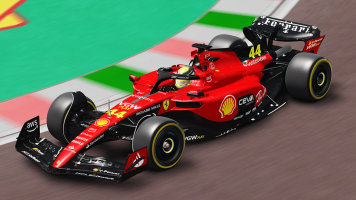After months of public declarations, media speculation, and internal conversation, it seems the engine merry-go-round has finally stopped for Red Bull, and as fortune would have it, they’re right back where they started.
Despite attempts to switch to every other supplier on the grid (and some off of it) over the past several months, the latest reports have the four-time world champions back with Renault for 2016 in a marriage which is sure to rival any of Tom Cruise’s for awkwardness.
However, Red Bull’s return to the Renault fold is reportedly not without some new wrinkles, as the Milton Keynes outfit seems set to lean more heavily on the expertise of former Ilmor Engineering boss Mario Illien to add their own improvements to Renault’s supply – essentially becoming their own supplier. And while Illien himself remains coy on any sort of concrete partnership with the team, they would be mad not to jump at the chance.
Two years since Red Bull last reigned supreme in the constructor’s championship, it’s become readily apparent that the Renault partnership of old no longer possesses the magic it once did. Their V6-hybrid has never been able to catch up from the massive disadvantages it suffered at the start of the 2014 season, and there is no guarantee it ever will. Renault itself is on the verge of making the Enstone-based Lotus a factory team once more, meaning that even if the French supplier righted the ship, Red Bull couldn’t be certain they’d have works parity – which is the exact same concern they’ve had negotiating with every other supplier in the sport. Barring renewed interest from a company currently not in F1, such a deal is the best way to ensure the team remains competitive in the long term.
Of course, such a move is a massive investment financially, and given the team has voiced on more than one occasion its willingness to leave the sport altogether, it may seem a bit far-fetched. Still, the truth is Red Bull has benefited massively from its association with F1 – there really is no other sport that reflects both its “extreme” image while simultaneously appealing to a mainstream audience, so why shouldn’t Red Bull double-down on its commitment? Particularly if they do bring Illien on-board, they’d be reigniting his highly successful partnership with Adrian Newey that won the 1998 constructor’s title for McLaren.
From a fan’s point-of-view, it would certainly be the best possible outcome, for the same reason why Honda’s return – as disastrous as it has been so far – is absolutely fantastic for F1. As much as we need the Williamses and Lotuses of the grid, it’s those teams who are willing to fail in their quest for a constructor’s title that contribute most to the future of the sport, because it gives us either more race-winning cars, or more opportunities for amusing, Alonso-esque complaints from their drivers.
Unfortunately, such a move would not exactly guarantee Red Bull to a long-term commitment, but it would alleviate any concerns in the short term.The engine supplier game is an extremely lengthy process, and it's yet to be seen whether Red Bull can develop the patience to sustain even a two-year winless streak, as Newey and Illien did from 1995-96. It would require a massive turnaround in mindset from a team that has shown in the last two years it will accept nothing less than first place - in that case, this will only lead to a very quick exit from the sport at the end of their contract with FOM.
The hope is Red Bull are moving towards a more long-term, pragmatic view of what it takes to excel, and developing their own engine is the best way to do that. As much as F1 needs more competition now, if Red Bull manage to give themselves wings and truly take flight, everyone will benefit from it even more in the future.
Is becoming their own supplier the best way forward for Red Bull? Or are they too impatient to make it work? Sound off in the comments below.










